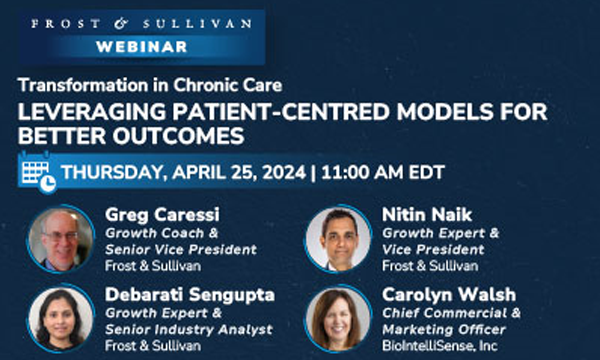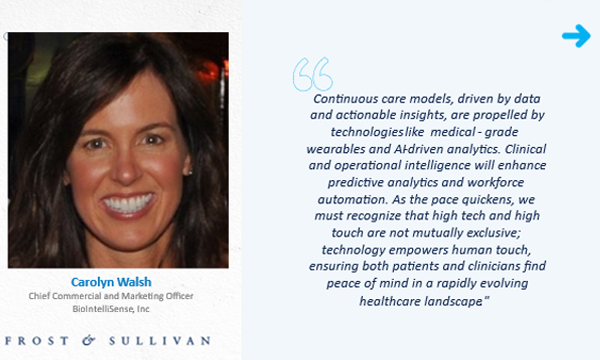
Patient-centered care, as defined by the National Quality Forum, emphasizes collaborative partnerships among patients, their families, and healthcare providers. It prioritizes individuals’ priorities, goals, needs, and values for better health outcomes. Despite initial challenges, advancements in remote monitoring devices, wearables, and telehealth technologies are accelerating the shift toward out-of-hospital care models. These innovations are empowering patients, enhancing autonomy, and facilitating seamless collaboration between patients and healthcare providers.
Has your team identified the right opportunities in chronic care to drive growth & innovation?
Frost & Sullivan’s Chronic Care Think Tank series delved into the fascinating realm of “Transformation in Chronic Care: Leveraging Patient-centred Models for Better Outcomes.” This engaging discussion yielded pivotal contributions that are shaping the future of the industry, thanks to the collaborative efforts of visionary experts.
The following experts collectively brainstormed to craft transformative perspectives:
Carolyn Walsh, Chief Commercial & Marketing Officer, BioIntelliSense, Inc.; Greg Caressi, Growth Coach and Senior Vice President, Frost & Sullivan; Nitin Naik, Growth Expert and Vice President, Frost & Sullivan and Debarati Sengupta, Growth Expert & Senior Industry Analyst, Frost & Sullivan.
Note: Gain valuable perspectives from these industry experts by clicking here to access the recorded session of the Think Tank.
What were the growth opportunities discussed during the think tank?
- Digital Health for Enhanced Patient Care: Experts underscored the pivotal role of digital health technology as clinicians rethink their relationships with patients and patients’ rethink about their role in self-care.
- Navigating Chronic Care Complexity: The discussion spotlighted the challenges in managing patients with multiple chronic conditions, emphasizing the need for clinicians to balance improvement of clinical outcomes while decreasing utilization of diagnostic testing and hospitalizations.
- Medical-Grade Wearables for Clinical Precision: The session highlighted the transformative potential of medical-grade wearables in providing real-time, high-fidelity data streams for early clinical intervention, stressing the importance of unified data models and technological simplicity.
- Technology’s Role in the Healthcare Evolution: The conversation delved into technology’s transformative impact on healthcare, exploring enterprise solutions reshaping both clinical and administrative workflow, as well as strategic partnerships driving predictive analytics adoption to boost self-care.
- Harnessing Predictive Analytics for Holistic Care: Experts discussed the integration of predictive analytics into holistic care models, emphasizing its potential in early detection, intervention, and cost reduction, while addressing challenges such as data interoperability and algorithmic bias.
Is your growth team exploring technology and data analytics to navigate the complexities of chronic care?




